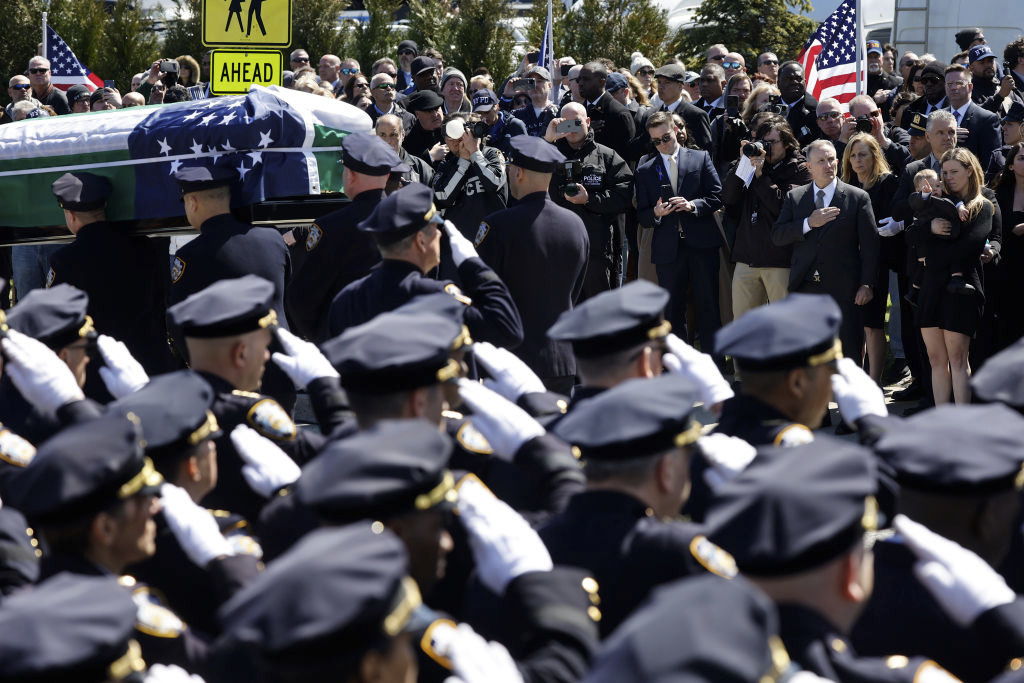
On the eve of Easter Sunday, for as far as the eye could see, thousands of police officers lined a quiet suburban Long Island street to offer their solemn final salute to a fellow officer, who was shot to death during a traffic stop in New York City. They came from all over the nation to pay tribute to one of their own, yet another victim in the absence of a war against crime, a situation that has been made far more violent, far more dangerous in the wake of legislation such as so-called "bail reform" -- now basically a catch-and-release, in which criminals are regarded as victims and victims are regarded as criminals -- and similar progressive initiatives that are unraveling our society.
Detective First Grade Jonathan Diller was married to a nurse named Stephanie; they had a toddler named Ryan.
In her eulogy to her murdered husband, Stephanie told a packed church: "He was excited that Ryan's first word was 'Dada,' and I remember I would playfully try to get him to say 'Mama' instead. But now I never want to stop hearing Ryan say 'Dada' to me."
"Our lives were pretty much perfect until five days ago when everything changed forever.... He wasn't the type to sugarcoat anything, so I won't sugarcoat this: This is devastating; it's a devastating, senseless and tragic loss for so many — our family, our friends, and the entire city of New York," this courageous widow continued.
She asked, "How many more police officers and their families will have to make the ultimate sacrifice before the city protects them?"
Media reports that when she finished her tribute, "thunderous applause rose from the thousands of mourners inside and outside the church."
Regardless of where you live, or what you have experienced in your communities, this tragedy speaks to a nation in turmoil. Entire urban downtowns have become wastelands. Legislation has been passed that harms the ability of police to perform their duties.
With blue flags flying throughout Diller's community, they reflect the lasting support from neighbors seeking to stand in solidarity with a family shattered by a murderous felon. Those flags, however, cannot begin to reflect the seething anger and heartfelt grief that is a legacy of Diller's death. There are those, including this author, who will ask why the murderer will likely be sentenced to life imprisonment. Why aren't we prepared to bring back capital punishment for those who take the lives of those brave men who daily risk their own lives to protect our families, our communities, and our society? Why indeed?
Lawrence Kadish serves on the Board of Governors of Gatestone Institute.


